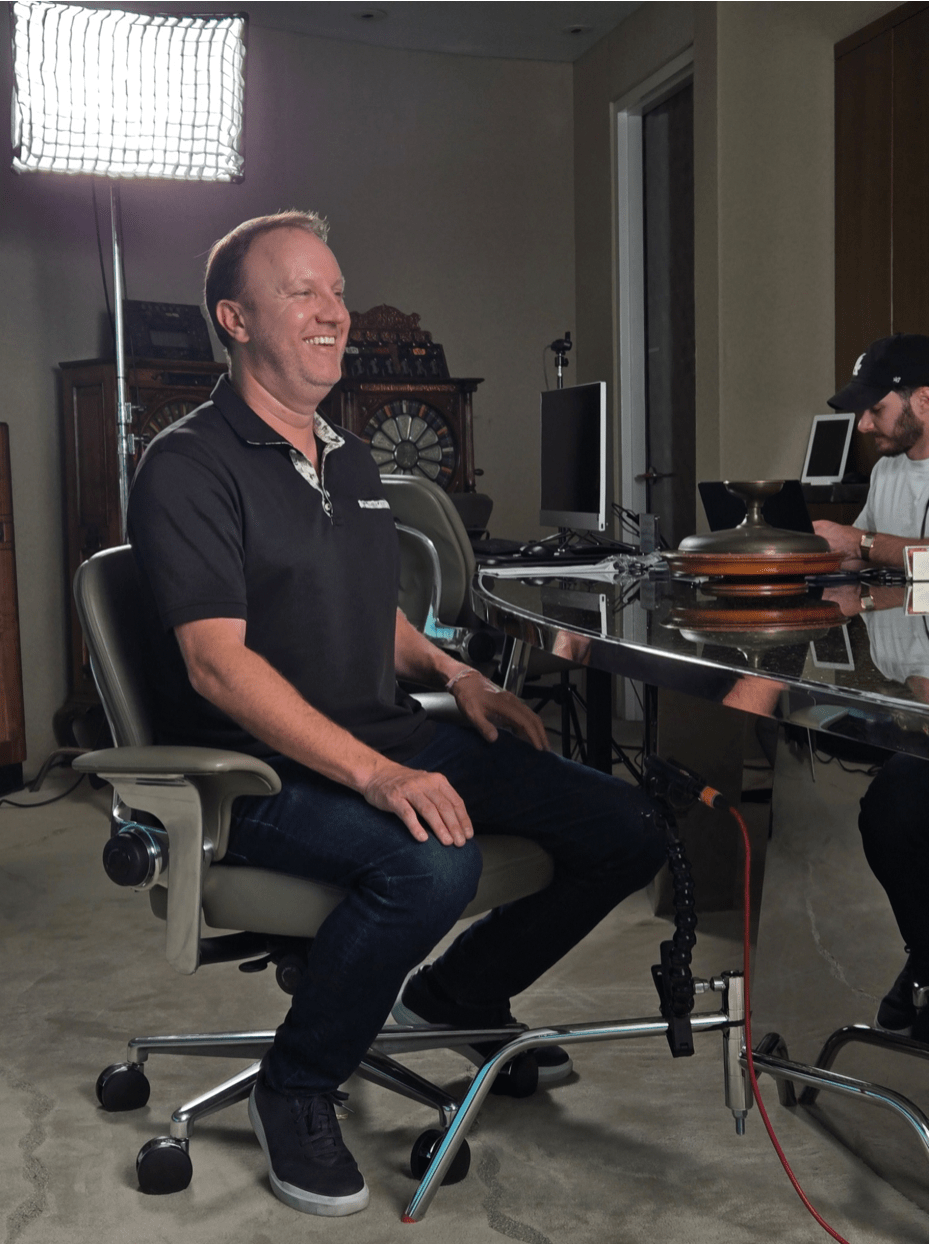Entertainment
Upton Bass – Ending The Usual Struggles Of Musical Artists

Music has a rich history as old as time itself. Dating all the way to the time of ancient Greek musical performances have been the shining stars of any royal or dignified gathering. Kings and emperors have always been on the lookout for musical talents that can provide them with optimum entertainment. Creating musical masterpieces requires the artist to be driven to perfect the art. It entails putting in long hours of hard work to groom one’s musical talent. However, another imperative factor is overlooked when gauging someone’s musical talent.
Similar to how the performance of a professional race car driver is dependent on the type of car driven, a musician’s performance is also greatly influenced by the quality of instrument used by them. Keeping their instruments in immaculate condition is crucial to perform at their best for any artist. But maintaining one’s instrument is easier said than done. A musical instrument is a delicate tool that requires the touch of a professional. Not everyone can mend and perform maintenance on such delicate tools, and instruments of the stringed nature are even more so hard to tend to. Artists have always experienced difficulty finding a quality contact that can care for their instruments with top-notch quality. Upton Bass is one company putting an end to the constant troubles and struggles of the artists regarding their instrument maintenance in the sting instrument industry.
The only one who can understand a professional’s true troubles is a similar professional of a relevant field. Unbeknownst to many people maintaining and retaining musical instruments is a field where very few flourish. Tending to musical instruments is a field of work that one cannot master by only going through company-mandated training. One can only become a master of this trade after spending some time surrounded by this melodious art.
Gary Upton founded Upton Bass in 1999. After spending some time as an accomplished bassist, Gary observed a key issue in the industry for similar bassists and other artists like him. A recognized artist had a pre-determined schedule, usually with performances scheduled to cover the complete year. However, problems and mishaps always arise at the most inconvenient time for an artist. After playing with their preferred instruments for a long time, each performer becomes familiar with them and tries to avoid replacing them. Gary understood the troubles of an artist having to face them on numerous occasions and decided to provide a way to lessen the burdens of a musical artist. After its founding, Upton Bass String Instrument Company provided a place where artists could expect their instruments to get the care they keep using them. Affordability was a trait Upton Bass boasted off. They prided themselves in providing instrument maintenance and upgrading the instruments at very affordable prices.
The business started its operations from their first-ever shop that was located in Jewett City, CT. Immediately after starting, the business experienced a huge surge in business. As Gary was famous in the music industry, the news of him starting a maintenance and sales shop spread fast and reached the ears of various active performers. Knowing that he would provide the quality of service they search for as a fellow artist, Upton Bass soon became the number one choice of service provider for many musical professionals. As the business grew, so did the need for a more hands-on deck, and Upton Bass moved to a bigger location in Downtown Mystic, CT, in 2004. After some time there, they again experienced the need to add to their small family of instrument maintenance professionals and therefore shifted to an industrial park in Stonington, CT. Although providing an adequate work environment, their new location did not sit well with Gary and his business partners. Although functional, the location lacked a certain charm and nuance that was the essence of their business. Therefore they continued operations temporarily while actively looking for a location that had that spark they were looking for. After searching high and low, the answers that ultimately came to them were rather obvious and convenient for the owners. The property owned by Gary and his wife included an old barn that was once a thriving industrial site. All partners agreed that this location would be convenient and provide a suitable environment where their business could flourish. The company moved to its new home location after making required renovations in October 2013.
Currently, Upton Bass employs ten employees, out of which eight are working full-time and two part-time. For the superior quality of service Upton Bass has received many notable mentions and awards such as the 2009 Silver Medal for best overall tone by the International Society of Bassists and the 2013 Certificate of workmanship by the International Society of Bassists. Upton Bass was founded with a goal to eliminate all the day-to-day hurdles an artist has to face providing ease of accessibility and affordance for all.
Entertainment
Going Public: The Groundbreaking Series Transforming How Americans Invest

In a media landscape saturated with reality TV and startup showcases, Going Public stands apart, not just as a show but as a movement. Now in its third season, the interactive series invites viewers to do more than just watch entrepreneurs chase success. It gives them the tools and the opportunity to invest in startups in real time, democratizing access to early-stage funding and reshaping how ordinary Americans engage with entrepreneurship and wealth-building.
Launched by Todd M. Goldberg, a former MedTech executive who hit a frustrating wall while preparing his company for a Nasdaq IPO, Going Public was born from a moment of personal disillusionment.
“When I brought a list of interested friends and colleagues to the Chairman of the Board,” Goldberg recalls, “he explained that all the IPO shares were reserved for institutional investors. That was my epiphany. I just knew that was wrong. Regular people should have a chance to invest in IPOs, but it needed to go even further.”
That insight became the foundation for Going Public, a hybrid of entrepreneurial storytelling and financial access that offers retail investors a seat at the table usually reserved for venture capitalists and insiders. The show brings audiences inside the capital-raising journey of startups, often before they go public, and leverages a powerful innovation: its “Click-to-Invest” feature.
“The bottom line with Click-to-Invest is that it’s seamless,” says Goldberg. “Viewers can go from watching the show to literally clicking a button. It feels more like a Shopify or Amazon checkout than a traditional investment process.”
This accessibility is central to the show’s mission: to educate, inspire, and empower everyday people to participate in early-stage investing. Unlike financial news channels that target seasoned traders, Going Public merges entertainment with financial literacy, using real startup stories to highlight the risks, rewards, and realities of entrepreneurship. It’s financial content with emotional stakes, real people, and tangible outcomes.
Season 3 reflects how far the show has come and where it’s going. With more celebrity involvement, including gaming icon Ninja backing the cashew milk startup Nutcase, and a strategic partnership with the social media platform X (formerly Twitter), Going Public has widened its reach while deepening its cultural relevance.

“How do you make this mainstream?” Goldberg says. “The concept was The Apprentice meets Shark Tank meets IPO, but with a twist. Viewers aren’t just spectators, they’re stakeholders.”
The show’s selection of featured companies is another defining element. Startups are chosen not just for their growth potential but also for their mission, relatability, and cultural resonance. In Season 3, that includes everything from disruptive wellness brands to tech-enabled platforms, each paired with guidance from top-tier venture capitalists and Silicon Valley mentors.
This season also introduces a livestream finale, a format innovation designed to create a real-time, high-stakes environment where viewers can watch, decide, and invest together. It adds urgency and community to the investing experience, aligning with the show’s values of transparency and participation.
One of the most surprising and meaningful outcomes has been the personal stories from viewers who never imagined themselves as investors. “We’ve heard from teachers, nurses, and even students who said this was their first time investing and they felt confident doing it because the show made it accessible,” Goldberg shares. “It’s not just about money, it’s about empowerment.”
Looking ahead, Goldberg and his team have ambitious plans. They aim to expand the format to new platforms, explore international adaptations, and build out educational tools so viewers not only invest but understand what they’re investing in. The goal isn’t just more participation. It’s smarter participation.
In a world where capital often feels distant, technical, and exclusionary, Going Public brings the financial journey down to earth and into the hands of the people. It’s not just a show. It’s a redefinition of how business stories are told and how wealth can be created and shared.
-

 Tech4 years ago
Tech4 years agoEffuel Reviews (2021) – Effuel ECO OBD2 Saves Fuel, and Reduce Gas Cost? Effuel Customer Reviews
-

 Tech6 years ago
Tech6 years agoBosch Power Tools India Launches ‘Cordless Matlab Bosch’ Campaign to Demonstrate the Power of Cordless
-

 Lifestyle6 years ago
Lifestyle6 years agoCatholic Cases App brings Church’s Moral Teachings to Androids and iPhones
-

 Lifestyle4 years ago
Lifestyle4 years agoEast Side Hype x Billionaire Boys Club. Hottest New Streetwear Releases in Utah.
-

 Tech7 years ago
Tech7 years agoCloud Buyers & Investors to Profit in the Future
-

 Lifestyle5 years ago
Lifestyle5 years agoThe Midas of Cosmetic Dermatology: Dr. Simon Ourian
-

 Health6 years ago
Health6 years agoCBDistillery Review: Is it a scam?
-

 Entertainment6 years ago
Entertainment6 years agoAvengers Endgame now Available on 123Movies for Download & Streaming for Free
